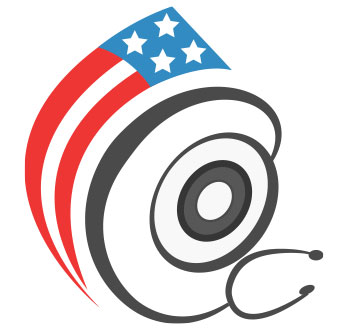Study shows Rasilez®, the first and only approved direct renin inhibitor, reduces a marker of heart failure severity and is well-tolerated.
Rasilez® (aliskiren), the first new type of high blood pressure medicine in more than a decade, is generally well-tolerated and can potentially reduce the severity of heart failure[1] based on new data showing significant reductions in BNP, a substance secreted by the heart and whose levels are viewed as an indicator of disease severity.
The ALOFT (Aliskiren Observation of Heart Failure Treatment) study results, presented today at the European Society of Cardiology Congress in Vienna, were the first to highlight the potential benefits of Rasilez beyond blood pressure lowering. Rasilez, which is the first in a new class of high blood pressure medicines called direct renin inhibitors, was launched in the US in March 2007 and received European Union approval in August.
Heart failure, also often referred to as congestive heart failure, may develop slowly over years and occurs when the heart's ability to pump blood is weaker than normal. This condition is particularly seen in patients with high blood pressure[4] and is a growing cause of hospitalization and death. Most cases of heart failure lead to death within five years.
Unlike some other blood pressure medicines, such as calcium channel blockers and some beta-blockers that can worsen heart failure[2],[3], Rasilez demonstrated good safety and a tolerability profile similar to placebo (or sugar pill)[1] when used in this hard-to-treat patient population.
In the 12-week trial, Rasilez was added to existing standard-of-care therapies including ACE inhibitors and angiotensin receptor blockers (ARBs), which are other types of high blood pressure medicines. As expected, a slightly higher but non-significant number of patients receiving Rasilez experienced hyperkalemia (elevated potassium levels) compared to those receiving a placebo. This was usually mild and did not lead to an adverse outcome.
The results showed that the addition of Rasilez to standard heart failure treatments resulted in reductions in BNP (brain natriuretic peptide) nearly five times greater than the standard therapy alone (-61 pg/ml versus -12 pg/ml). This difference in BNP reductions was highly significant (p= 0.016)[1]. BNP is a substance released from the heart's lower ventricles in response to increased wall tension. The level of BNP in the bloodstream increases when heart failure symptoms worsen and decreases when the heart failure condition is stable.
"Blocking the renin-angiotensin-aldosterone system (RAAS) with an angiotensin-converting enzyme (ACE) inhibitor is of unequivocal benefit in heart failure," said Professor John McMurray, British Heart Foundation Cardiovascular Research Centre, University of Glasgow, Scotland.
"The question we asked is whether adding aliskiren to an ACE inhibitor, to further block the RAAS, would be safe and have potentially greater benefit in heart failure. In our study, aliskiren, when added to standard therapy, was well-tolerated and reduced the plasma concentration of BNP, a blood test used as a marker of cardiac strain. Further research is needed to tell us whether this reduction in BNP might be associated with improvements in clinical outcomes," Dr. McMurray said.
The ALOFT study is the first of a series of trials in ASPIRE HIGHER, an extensive ongoing clinical program studying the benefits of Rasilez beyond reducing blood pressure due to its direct inhibition of renin, an enzyme that triggers a process that can lead to high blood pressure. Additional data involving the use of Rasilez in patients with heart failure and new data in patients with kidney failure are expected to be presented later this year.
Rasilez is the first in a new class of high blood pressure medicines called direct renin inhibitors and has demonstrated significant blood pressure lowering when used alone[8],[9] or in combination with other blood pressure medicines[8],[10],[11],[12]. It is not currently indicated for use in treating patients with heart failure, and additional long-term studies are needed to assess its potential effects on heart failure.
"Rasilez has consistently shown good tolerability and strong blood pressure lowering across trials," said James Shannon, MD, Global Head of Development at Novartis Pharma AG. "The ALOFT study highlights the potential benefits of Rasilez beyond blood pressure lowering in a vulnerable, hard-to-treat patient population.
Rasilez was approved in the European Union in August 2007 and in the US in March 2007 under the trade name Tekturna®. In July 2007, Novartis announced the Swiss approval of Rasilez. It was developed in collaboration with Speidel.
Article Source:
- http://www.webwire.com/ Posted: (WebWire) 9/3/2007 11:45:42 AM
DoctorSolve™ Healthcare Solutions Inc., a Canadian Internet-based pharmacy intermediary (license #BC X23), offers low-cost, long-term prescription drugs. A professionally registered pharmacist fills all Canadian prescriptions. A certified member of the Canadian International Pharmacy Association, DoctorSolve™ is ranked as one of the best online Canadian pharmacies.
DoctorSolve™ is ranked as one of the best Canadian pharmacies online. DoctorSolve™ has filled more than 200,000 U.S. prescriptions.
For more information on how to order Canada drugs safely and securely call 1-866-732-0305 or visit https://www.doctorsolve.com/ - a trusted and reliable Canadian online pharmacy since 1999.






